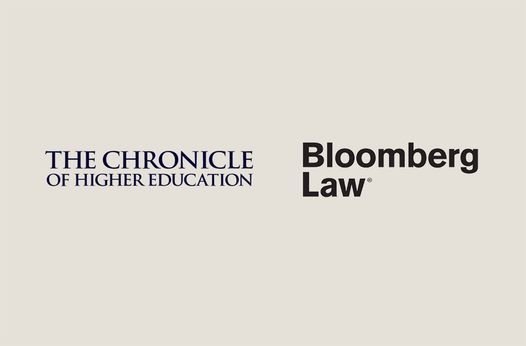Employment Practices Newsletter - September 2011 Edition
Hinshaw Newsletter | 9 min read
Sep 1, 2011
Employee Statement Advising Supervisor to Bring Boxing Gloves Is Metaphoric
A construction company issued warnings to its electricians for taking breaks that exceeded a 15-minute limit and told them that future infractions would lead to progressive discipline. One electrician responded that if he was laid off for such an infraction “it’s going to get ugly” and that the supervisor “better bring [his] boxing gloves.” A second electrician echoed the statement that “it’s going to get ugly.” Both electricians were fired for making statements that managers interpreted as physical threats in violation of the company’s zero-tolerance policy for workplace violence. The electricians successfully challenged their terminations as violations of Section 7 of the National Labor Relations Act (NLRA), which protects concerted activity. The U.S. Court of Appeals for the D.C. Circuit upheld the National Labor Relations Board’s decision reinstating the employees. The court held that when viewed objectively, the statements were metaphoric figures of speech that expressed the electrician’s willingness to “fight” for better work conditions. The statements were “single, brief, and spontaneous reactions” of resistance that were not so egregious as to remove them from the NLRA’s protections. Employers encountering similar employee statements are advised to object to them as acts of insubordination, as well as threats of physical violence. Although the court stated that the electricians’ statements were not obscene, it recognized that the NLRA does not tolerate “obscene insubordination” simply because it is not accompanied by physical threats.
Kiewit Power Constructors Co. v. NLRB, No. 10-1289 (D.C. Cir. Aug. 3, 2011)
Hostile and Boorish Bullying Does Not Support Race-Based Hostile Work Environment Claim
A Caucasian employee severely injured when an African-American co-worker dropped a 940-pound steel coil on him sued his employer, arguing that his co-worker’s bullying behavior created a race-based hostile work environment under the Civil Rights Act of 1866 (42 U.S.C. § 1981). The U.S. Court of Appeals for the Seventh Circuit held that although the co-worker’s conduct was hostile and boorish, because the employee was not the target of racial slurs, epithets or overtly race-related behavior, the conduct was insufficient to create an abusive working environment. Furthermore, the court found it significant that the employee did not report his concerns to the proper official as required under the employer’s harassment policy. While the employer in this case escaped liability, employers should, in order to avoid lawsuits, be proactive and create positive work environments where employees are not subjected to abuse for any reason.
Yancick v. Hanna Steel Corp., Case No. 10-1368 (7th Cir. Aug. 3, 2011)
NLRB Releases Report on Social Media Cases
On August 18, 2011, the National Labor Relations Board’s (NLRB’s) Acting General Counsel issued a report that highlights numerous cases involving the use of social media by both employees and employers and the effect of such use on the workplace. The report contains discussions of cases where employees’ use of social media was found to be “protected concerted activity” and others in which an employer’s social media policy was unlawfully overbroad. Given that social media has become an integral component in many workplaces, employers should be mindful of these decisions when implementing social media policies and taking adverse action against employees for their social media practices.
https://www.nlrb.gov/news/acting-general-counsel-releases-report-social-media-cases
Worker Denied Ability to Maintain Discrimination Claim Based on Sexual Orientation
After working on the 2007 Country Music Awards production, a theater producer complained to his union that one of his co-workers harassed him based upon his homosexual orientation. Shortly thereafter, according to the employee, the union local stopped referring him for jobs. The employee sued, alleging violations of the Tennessee Human Rights Act and Title VII of the Civil Rights Act of 1964, as amended, for gender discrimination and retaliation, and also alleged violation of the union’s duty of fair representation. The U.S. Court of Appeals for the Sixth Circuit dismissed the employee’s claims because neither federal nor the applicable state law prohibit discrimination based upon sexual orientation. Courts have uniformly held that the reference to “sex” in Title VII does not refer to sexual orientation. The employee had attempted to circumvent those decisions by arguing that he was discriminated against for failing to conform to sexual stereotypes, a claim which has been found to be viable under Title VII. The court rejected this argument, finding that the employee’s claim was simply one for discrimination based on sexual orientation, which is not prohibited under Tennessee or federal law. Employers—especially those that conduct business in numerous states—must be mindful of both state and federal anti-discrimination laws, which are often different in terms of what constitutes a protected characteristic. More than 20 states prohibit discrimination based upon sexual orientation.
Gilbert v. Country Music Ass’n., Inc., Case No. 09-6398 (6th Cir. Aug. 2, 2011)
NLRB Clarifies Double Eagle Rule
Employees of a condominium complex were governed by an employee manual that included a rule prohibiting employees from being on the property unless working or picking up a paycheck. A maintenance employee took a personal leave to deal with a legal claim that had been raised against him. While on leave, the employer was informed that the employee had been seen loitering on the premises and discussing his legal issues with residents. The employee was warned about this conduct, but was subsequently found engaging in the same conduct. As a result, the employee was reassigned to a less desirable position. The employee later resigned. An unfair labor practice charge was filed against the employer based on the argument that the rule under which the employee was punished was overly broad. The administrative law judge hearing the matter ruled that the rule was overbroad and that discipline imposed pursuant to an unlawfully overbroad rule is itself unlawful. This premise is commonly referred to as the “Double Eagle rule.” The National Labor Relations Board (NLRB) reversed, and in doing so provided some clarification regarding the proper application of the Double Eagle rule. Specifically, the NLRB ruled that the rule does not apply where the conduct for which discipline was imposed is “not similar” to conduct protected by Section 7 of the National Labor Relations Act. Additionally, an employer may raise an affirmative defense by establishing that the employee’s conduct actually interfered with his or her own work, or that of others, and that such interference, rather than the violation of the rule, was the true reason for the discipline. Employers should strive to have narrowly tailored workplace rules that specifically fit their workplaces, and to ensure that the basis for any termination based on misconduct is well-documented, including the effects of that misconduct on the business.
The Continental Group, Inc., 357 NLRB No. 39 (Aug. 11, 2011)
EPPA Permits Employer to Request Polygraph Test After Receiving Credible Evidence That Employee Stole From Employer
A bank discovered that $58,000 was missing from one of its locations. Surveillance videos showed that the manager at the location had instructed his employees to ignore certain anti-theft policies, and employees confirmed that the manager had repeatedly violated the policies. The employer fired the manager for violating the policies. Before informing the manager of his termination, however, the employer requested that the manager submit to a polygraph test regarding the missing money. The manager refused and, after being fired, sued the employer for violating the Employee Polygraph Protection Act (EPPA). The EPPA prohibits employers from requesting that an employee take a polygraph test, except where the request is made as part of “an ongoing investigation” into a “specific incident of economic loss” and based upon a “reasonable suspicion” that the employee was involved. The U.S. Court of Appeals for the Fifth Circuit found that the employer’s request was made as part of an investigation into a “specific incident of economic loss” because while the EPPA does not allow employers to use polygraph tests as “fishing expeditions” whenever money is lost, the employer here requested the test only after receiving other evidence suggesting that the manager had taken the money. The court also found that the employer’s suspicion of the manager was reasonable because the “totality of the circumstances” established not only that the manager had the opportunity to take the money, but also gave “reason to believe that [he] was actually capitalizing on that opportunity.” Employers should be aware that requesting or even suggesting that an employee take a polygraph test violates the EPPA, unless the employer has evidence prior to making the request that credibly suggests that the employee stole the employer’s money or property.
Cummings v. Washington Mutual, Case No. 10-10706 (5th Cir. Aug. 22, 2011)
NLRB Cannot Award Back Pay to Undocumented Workers Even When Employer Knew of Worker’s Illegal Status
Seven undocumented workers filed unfair labor practice charges against their employer, asserting that their rights under Section 7 of the National Labor Relations Act to be free to bargain collectively regarding working conditions were violated when they were fired after complaining as a group about how a supervisor treated them. The workers settled with the employer. Pursuant to the formal settlement agreement the National Labor Relations Board (NLRB) ordered the employer to reinstate the workers and pay them lost wages. The employer argued that the workers could not be bound by the agreement based on the U.S. Supreme Court’s prohibition on awarding back pay to undocumented workers who violate the Immigration Reform and Control Act (IRCA). An administrative law judge ruled against the employer on the grounds that the employer had violated the IRCA by failing to verify the workers’ work authorization status. On appeal, an NLRB three-member panel unanimously found that because the Supreme Court decision used IRCA-violator-neutral language in its decision, the NLRB had no remedial authority to enforce a back pay award to undocumented workers. However, two NLRB members issued a concurring opinion warning employers that the decision should not be construed as closing the door on other possible monetary remedies for undocumented workers. In light of the concurring opinion, employers should be mindful that, going forward, the NRLB will consider any remedy within the board’s statutory powers to prevent an employer from being unjustly enriched by its unlawful conduct when the employer discriminates against undocumented workers.
Mezonos Maven Bakery Inc., 357 NLRB No. 47 (Aug. 9, 2011)
NLRB Identifies New Test for Assessing Bargaining Units in Nonacute Care Facilities
The National Labor Relations Board (NLRB) recently stated that it will no longer apply a special standard when determining whether bargaining units in nonacute health care facilities are appropriate under the National Labor Relations Act. Instead, employees in health care facilities other than hospitals will be subject to the same “community-of-interest” standard that the NLRB utilizes in other workplaces.
The case involved a representation petition filed by a group of certified nursing assistants (CNAs) working at a nursing home facility. The employer opposed the petition, arguing that the proposed unit was inappropriate under the standard set forth by the NLRB in its 1991 decision in Park Manor Care Center. In that case, the Board found that there are only eight appropriate bargaining units in nonacute health care facilities and that all others are inappropriate absent “extraordinary circumstances.” Therefore, the employer contended that a unit of CNAs was not appropriate inasmuch as all nonprofessional employees were not included (as required in the Park Manor Care Center decision and its progeny).
In the NLRB’s Specialty Healthcare ruling, the Board rejected the Park Manor Care Center standard, finding that “the suggestion that there is only one set of appropriate units in an industry runs counter to the statutory language and the main corpus of our jurisprudence.” The Board determined that all proposed units in nonacute health care facilities should instead be subject to the “community-of-interest” standard, under which any group of employees that generally shares work duties, skills, department affiliation, and other terms of conditions of employment is considered to be an appropriate unit.
Employers in the nonacute health care industry—including nursing homes and home care services—should be aware of this significant change in the NLRB’s position. Employees in such facilities will now be able to more easily gain representation based solely upon the common terms and conditions of their employment. Employers should therefore be prepared for a renewed interest in organizing and consult counsel to review strategies in responding to such interest.
Specialty Healthcare and Rehabilitation Center of Mobile, 357 NLRB No. 83 (Aug. 26, 2011)
Related Capabilities
Featured Insights

Employment Law Observer
Dec 8, 2025
12 Days of California Labor and Employment: 2025 Year in Review

Press Release
Dec 4, 2025
Hinshaw Recognized by the Leadership Council for Legal Diversity as a 2025 Top Performer

Press Release
Nov 25, 2025
Hinshaw Legal Team Secures Summary Judgment in Gas Station Injury Case

Press Release
Nov 18, 2025
Hinshaw Releases the Third Edition of Duty to Defend: A Fifty-State Survey

In The News
Nov 13, 2025
A Profile on Neil Rollnick: After 57 Years in Practice, He Has No Plans to Retire

Press Release
Oct 22, 2025
Hinshaw & Culbertson LLP Launches New Website and Refreshed Brand






